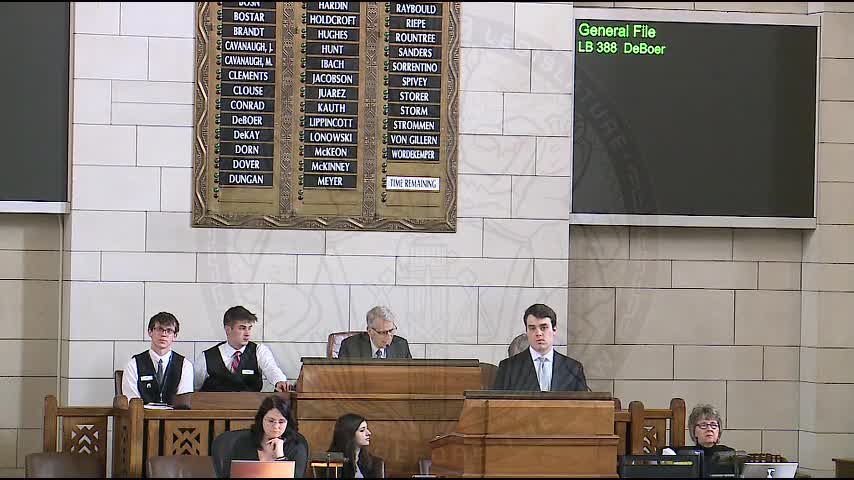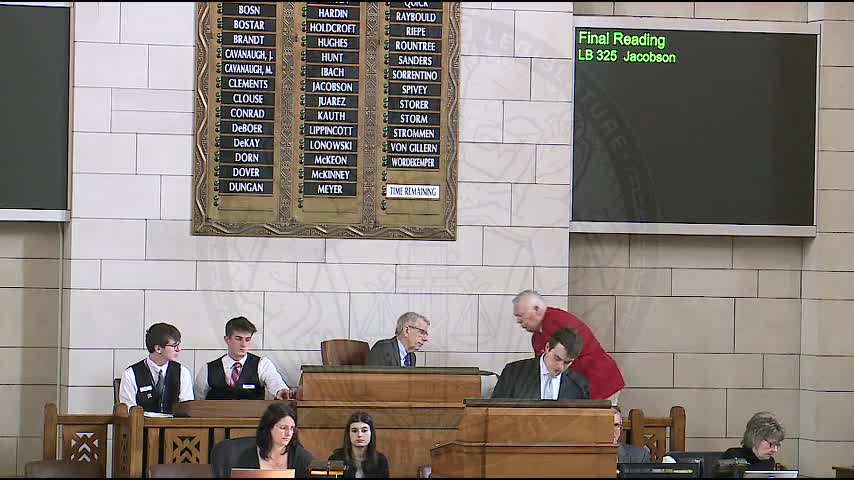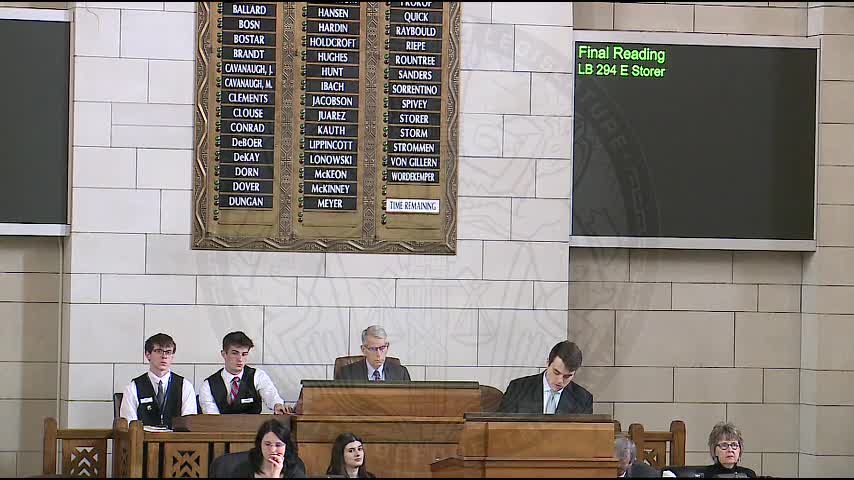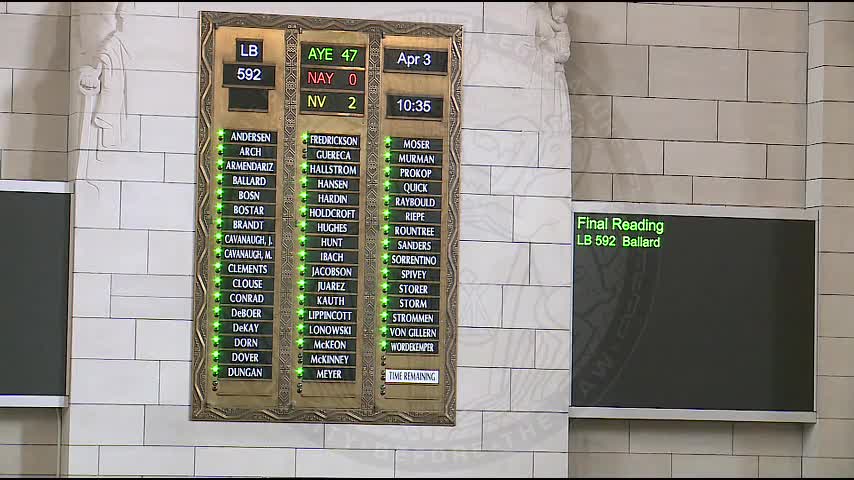Article not found
This article is no longer available. But don't worry—we've gathered other articles that discuss the same topic.

Senate advances changes to judicial nominating commissions to expand candidate pools and permit electronic voting

Senate advances bill to create suicide mortality review team focused on veterans and statewide data

Senate approves crypto-mining changes allowing public power districts greater control over infrastructure costs

